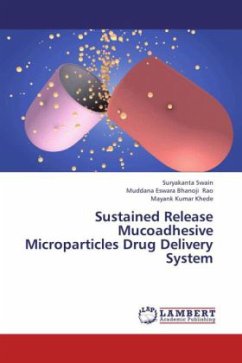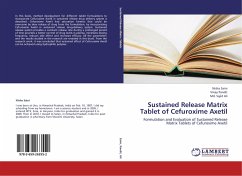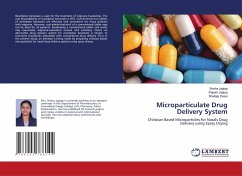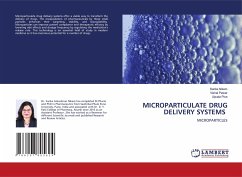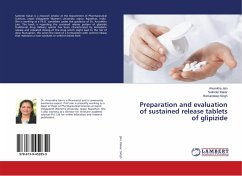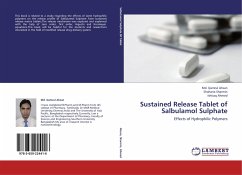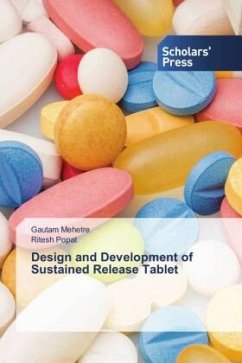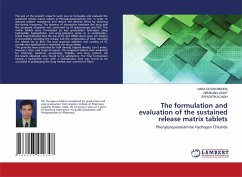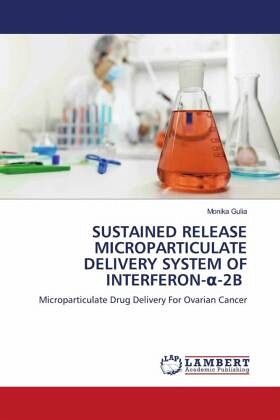
SUSTAINED RELEASE MICROPARTICULATE DELIVERY SYSTEM OF INTERFERON-¿-2B
Microparticulate Drug Delivery For Ovarian Cancer
Versandkostenfrei!
Versandfertig in 6-10 Tagen
40,99 €
inkl. MwSt.

PAYBACK Punkte
20 °P sammeln!
The encapsulation mechanism of _rINF- -2b in lipid, carbohydrate and protein based microspheres to achieve high encapsulation efficiency and protein loading capacity. _rINF- -2b is a fragile molecule and encapsulation requires in addition the preservation of their structural integrity and functionality. We estimated that _rINF- -2b-Pt-GMs-15 offered sustained release of protein over two weeks and released 95.01±4.23% of _rINF- -2b. The stability study assessment by gel electrophoresis and circular dichroism confirmed post translation structural integrity of _rINF- -2b in _rINF- -2b-Pt-GMs-15 ...
The encapsulation mechanism of _rINF- -2b in lipid, carbohydrate and protein based microspheres to achieve high encapsulation efficiency and protein loading capacity. _rINF- -2b is a fragile molecule and encapsulation requires in addition the preservation of their structural integrity and functionality. We estimated that _rINF- -2b-Pt-GMs-15 offered sustained release of protein over two weeks and released 95.01±4.23% of _rINF- -2b. The stability study assessment by gel electrophoresis and circular dichroism confirmed post translation structural integrity of _rINF- -2b in _rINF- -2b-Pt-GMs-15 nanoformulation. In vitro therapeutic efficacy testing of optimized formulation further provided compelling evidence with enhanced cytotoxicity and low IC50 in SKOV3 cells. Therefore protamine sulphate coated microspheres may potentially be used for sustained delivery of _rINF- -2b and warrants in depth in vivo study to scale up the technology for clinical intervention.



